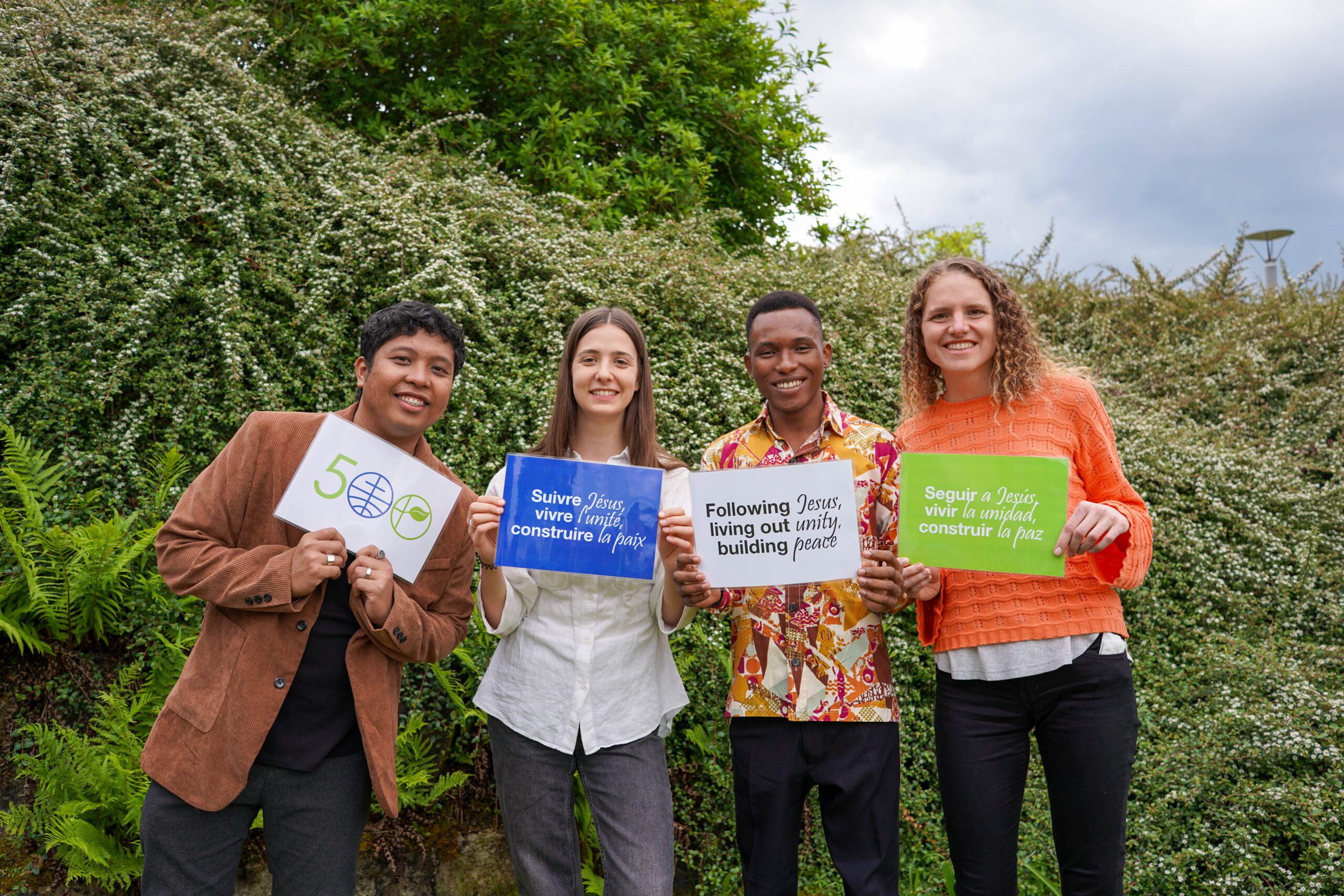Young adults are ambitious, capable, and more educated than the previous generations, according to a 2025 study by Randstad. However, the job market is becoming more competitive, and many are struggling to find employment.
Yet giving is a part of life as Christians. Young Anabaptists agree that financial giving is important. They recognize their local churches have poured in resources to grow their faith and help others in need.
“Help should not be denied as long as there is an opportunity to serve through giving. As Matthew 10:8 says, we should give by grace what by grace we have received,” said Luz Merier (Dominican Republic) from Iglesia Evangelica Menonita Luz y Vida Av. Mexico, Conferencia Evangelica Menonita Inc.
“Giving enriches and strengthens relationships between the giver and receiver, as well as providing encouragement in faith for both,” said Fousseni Josué Dembele (Burkina Faso) from Église Évangélique Mennonite du Burkina Faso.
“Through giving, I’m a part of something bigger. A bigger cause,” said Valentina Kunze (Uruguay) from Konferenz der Mennonitengemeinden in Uruguay, and Latin America representative to the Young Anabaptists (YABs) Committee.
“Giving wholeheartedly is a very important way of developing our faith in God,” Isaac Gborbitey (Ghana) from Ghana Mennonite Church, and Africa representative to the YABs Committee. “This indicates our willingness to put our affairs in the hands of God.”
Balancing giving with accountability
Wisdom and accountability play an important role in young adults’ consideration to give.
“I need transparency, [to know] what they do with the money,” said Saskia Horsch (Germany) from Mennonitengemeinde Schwandorf, and Europe representative to the YABs Committee. “Prior to giving, I also need to know the organization or person’s values. I would only give to something or someone where I feel like our values align.”
“I’d need some kind of personal face-to-face relationship with the organization I’m donating to – not just seeing their information on the internet. I’d need someone to give me testimonies of what this organization does and the impact it had,” said Valentina Kunze.
In different cultural contexts, giving with wisdom could look very different.
“In Ghana, before giving money especially to a stranger on the street who appears to be in distress, people are concerned about their safety. We would say a silent prayer before giving – not for God to bless the money or the giver and receiver, but to ask that the persons we’re giving it to do not use it for anything that harm them, or harm us as the giver,” said Isaac Gborbitey.
Even within the same culture, different churches or families may have different views on financial giving.
“My family and I are accustomed to tithing. But I know this is not the normal in many Christian families,” said Valentina Kunze.
Changing money conversations
Young people are gradually driving shifts in giving. Many still use traditional means like leaving money in the offering basket or supporting a goods and services auction, but increasingly they are taking advantage of electronic means like bank transfers or ways that combine other means like online fundraising campaigns.
“Just as they are driving innovation in fundraising, young people may also be changing the conversation around money. Whereas discussions of personal finance may be considered taboo in the past, nowadays young people seem to be more pragmatic and willing to speak frankly about what they do with money. As church leadership moves to younger people who are more adept at using technology, there is room for growth in this area,” said Bruce Campbell-Janz, MWC chief development officer.
“As we follow Jesus, we understand that everyone has something to give, regardless of amount, to build up the whole,” he said.
